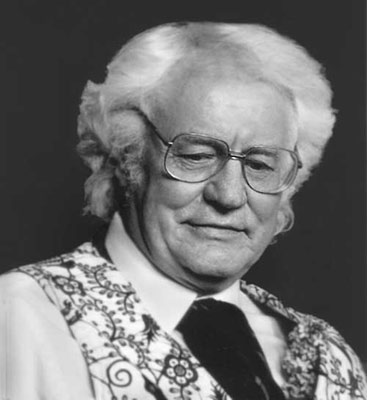Robert Bly at the Granada Theatre
Poems and Music from the Father of the Men's Movement

As regular performing arts goers in Santa Barbara will attest, the average audience is better than middle-aged, predominantly female, and politely reserved. Not so at the Granada last Thursday night. On April 23, the crowd that gathered in anticipation of Robert Bly’s appearance was overwhelmingly male, primarily of the boomer generation, and nearly bursting with emotional expressiveness. Before Bly even took the stage, the theater’s lobby was packed with men hugging, laughing, and carrying on earnest conversations.
When he did make his entrance, Bly’s first request was for the lights to be turned up on the audience. “They’re too handsome to sit in the dark,” he insisted. Only once this visual connection was established did he begin to read. Accompanied by his close friends David Whetstone playing the sitar and Marcus Wise on the tabla, Bly started out by reading his own poems about his family. “How much I love being with him,” he wrote of his grandson. “How much I love feeling his small leafy hand curl around my finger.”
Though at times his warm, raspy voice was nearly inaudible, Bly used repetition and asides to help his listeners access the meaning of his words. “You can’t pick up poems the first time anyway, so it’s all a big waste of time, you know?” he joked. “But it’s kind of fun.”
From his own work, Bly moved on to the writing of Ghalib, the pen name of a Muslim poet who wrote in Urdu in 18th-century India. With the help of his son-in-law Sunil Dutta, who joined him for these readings, Bly has translated a number of Ghalib’s impish yet sorrowful poems. “The longing for death is so strong it’s killing me,” he read, pausing to allow the audience a chuckle. “Why shouldn’t I scream? I can’t stop,” went another. “Perhaps the Great One only notices Ghalib when he stops screaming.” Beneath and through these poems ran the mesmerizing tones and rhythms of the sitar and tabla, carrying the audience along on a river of words and sound.
Far from soaking it all in in silence, Thursday’s audience sighed and tapped their feet, called out Bly’s name, and asked aloud for changes in the amplification of his voice. Despite its formal grandeur, the Granada was transformed for the evening into an oversized living room, one where friends gathered together in a spirit of connection and play.
In the second half of the evening, that spirit only grew, with representatives from the night’s benefiting nonprofit organizations, Boys to Men, Domestic Violence Solutions, and the Mankind Project setting a tone of authenticity and gratitude. Bly’s political jokes and wry commentary elicited full-blown laughter, while his way of listening to the musicians, eyes closed, fingers stroking the air, encouraged a similar immersion on the part of the audience. At times during his reading, his voice deepened to a growl, then climbed the register to the high notes of surprise and delight.
From his translations of the work of the medieval Persian mystic poet Hafez, Bly read, “Those who sit in the grief house will eventually sit in the garden : if the way the Milky Way revolves ignores your desires for one or two days, do not sink into sadness.”
Finally, Bly circled back to his own poems, poems that against the evening’s backdrop of mystic words and music stood out for their earthly clarity, as well as for the way they pointed toward eternal truths. “Each of us is a latecomer to the earth picking up wood for the fire,” Bly reminded his rapt audience. “We are perishable, friends. We are salty, impermanent kingdoms.”
Amen.



